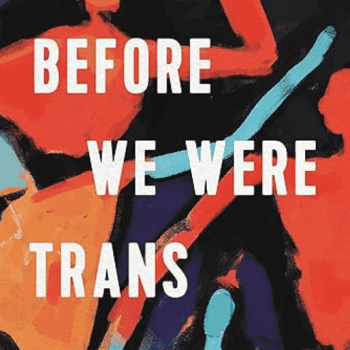(Greg Carey, Sinners: Jesus and His Earliest Followers. Waco, Texas: Baylor University Press, 2009. 211 pages.)
Greg Carey opens with a confession: his book’s title is intentionally provocative (vii). With a title like “Sinners,” one’s first associations might be with those who lie, cheat, steal, or otherwise infringe on some “thou shalt not” of religious tradition. But after the colon, we read the perhaps counterintuitive subtitle “Jesus and His Earliest Followers.” Accordingly, two of the many important questions Carey asks in this well-researched and accessible book are “Was Jesus a sinner?” and “Were Jesus’ earliest followers sinners?”
Most simply Carey is making the sociological point that, “Jesus and the first generations of Christians frequently violated conventional social norms” (vii). What is more important is that Carey — in highlighting Jesus’ transgressions — seeks to subvert the false assumption that choosing to follow the way of Jesus is synonymous with “respectability” from the perspective of the larger society. Instead, Carey contends, “Virtues like compassion, justice, or grace rank far below respectability on the public radar” (vii). Looking back to the life of Jesus as recorded in the Gospels, Carey seeks to retrieve “deviance and transgression” as vital for following the way of Jesus both in the first-century and today (viii).
One of the most interesting and strongest parts of Carey’s book is that he regularly weaves personal stories — or, more often, references to books, television, and film — to supplement his biblical research and to increase the relevancy of his work for today’s world and the wider culture. For the sake of space in this brief review, I am blending the material he addresses in each chapter with the sections in the epilogue that correspond to each chapter and recapitulate the same basic themes.
In Chapter 1, which focuses on “What Is a Sinner,” he brings the story of the woman in Luke 7:36-50 — who for an undisclosed reason is immediately perceived as a “sinner” by all the males in the story — into conversation with characters from the film Stand by Me. Chapter Two explores the idea of Jesus as a “Friend of Sinners,” and Carey deftly weaves in a comparison to the novel To Kill a Mockingbird, which depicts the perils of interracial friends in the segregationist South.
Chapter 3 on “Jesus and Impurity” includes references to Seinfeld and to the HBO film Normal, which addresses the often difficult process of negotiating transgender sexual identities. Chapter 3 is particularly sensitive to issues of Anti-Judaism in the Gospels — specifically the reflexive habit in many Christian circles of setting up the Jews as “straw men” that are easily knocked down or, more insidiously, scapegoating the Jews. For example, too many Christian sermons, Bible studies, and commentaries hinge on the (false) binary oppositions of Jews as the legalistic, antagonistic bad guys and Christians as the grace-filled, compassionate good guys. In seeking to show that the situation-on-the-ground was much more complex and messy, Carey goes so far as to ask, “Does Jesus get too much credit” (46)? Part of what Carey means is that the view that Jesus straightforwardly “disregarded Judaism’s purity laws” is too simplistic and is not justifiable on historical grounds (52). In contrast, Carey highlights that, “Jesus does not so much reach out to these people [‘sinners’] as he responds to their initiative.” Moreover, “[T]he Gospels testify that holiness is more powerful than impurity” (52).
After Chapter 4, which addresses the role of Paul’s writings from the perspective of Carey’s overall project (including a fascinating reference to The Simpsons episode, Lisa v. Malibu Stacy), Chapters 5 and 6 continue to debunk the simplistic explanation that Jesus died because he flouted Jewish purity laws. Instead, Carey looks to the anti-imperialist explanation of “Jesus the Convicted Seditionist” and makes important parallels between Jesus’ anti-Roman motivations and examples from the U.S. Civil Rights Movement. Finally, Chapters 7 and 8, return to the problem of Christianity and “respectability” today in light of the proceeding chapters — as well as making connections to other parts of the New Testament not previously addressed in his study such as non-Pauline epistles and Revelation.
I would be remiss, however, if I failed to mention the short, eight-page “Interlude” between Chapters 5 and 6. Arguably even more provocatively titled than the book itself, Carey asks about “The Sinless Jesus?” This short section alone is worth the price of admission. Carey first names some of the classic proof-texts for the doctrinal claim of Jesus’ “sinlessness” (Hebrews 4:15; 2 Corinthians 5:21; 1 Peter 2:22; 1 John 3:5). Importantly, Carey shows that Jesus’ personal sinlessness — even if that was the case historically — is not sufficient; instead, we know now that there are also corporate, institutional, and systemic sins such as racism, sexism, and war from which no individual can escape complicity (99). His contemporary example here is the life of the World War II Christian martyr Dietrich Bonhoeffer (101-104). Here I will quote at length to give you a taste of the profound points Carey makes in this interlude:
Sinlessness and innocence indicate the lack of something. They define Jesus’ worth in what he did not do, what he did not possess. The problem is, sinlessness might not be the best way of talking about Jesus. We need active, positive language for Jesus…. [H]e companioned sinners, confronted authorities, and brought healing to persons with all sorts of disabilities…. We might believe sin is contagious. Believing this, we avoid sin and seek refuge from it. On the contrary, Jesus believed sin was far less contagious than love, mercy, and justice. Rather than avoid sin and sinners, he cast himself in to the mix. (104).
In conclusion, it is appropriate that I am writing this book review on Maundy Thursday. This night is a time to remember that Jesus — even in one of his final meals — did not refuse to eat with Peter, who would deny him three times that very night. Nor did Jesus refuse to eat with Judas, who would betray him that very night. Instead, Jesus — as Carey so convincingly shows — had no qualms about eating with those society considered ‘sinners.’ The question for the reader, then, becomes whether Carey’s title seems, in the end, to be less provocative considering the book’s overall argument — that is does it seem in retrospect both less intuitive to associate the words “Christianity” and “respectable” as well as more intuitive to associate the word “sinners” with “Jesus and his earliest followers?”
(Visit the Patheos Book Club website for more resources on the book, including an author Q&A and excerpt.)
















